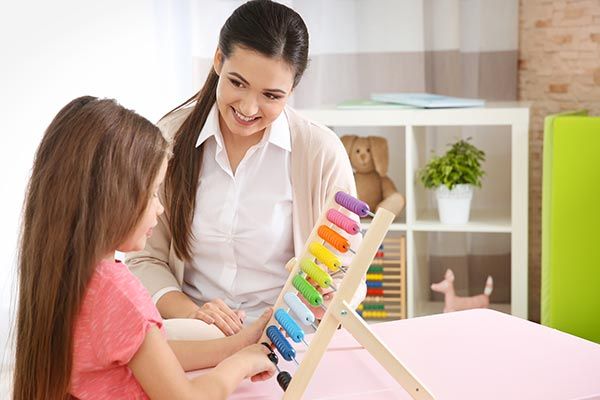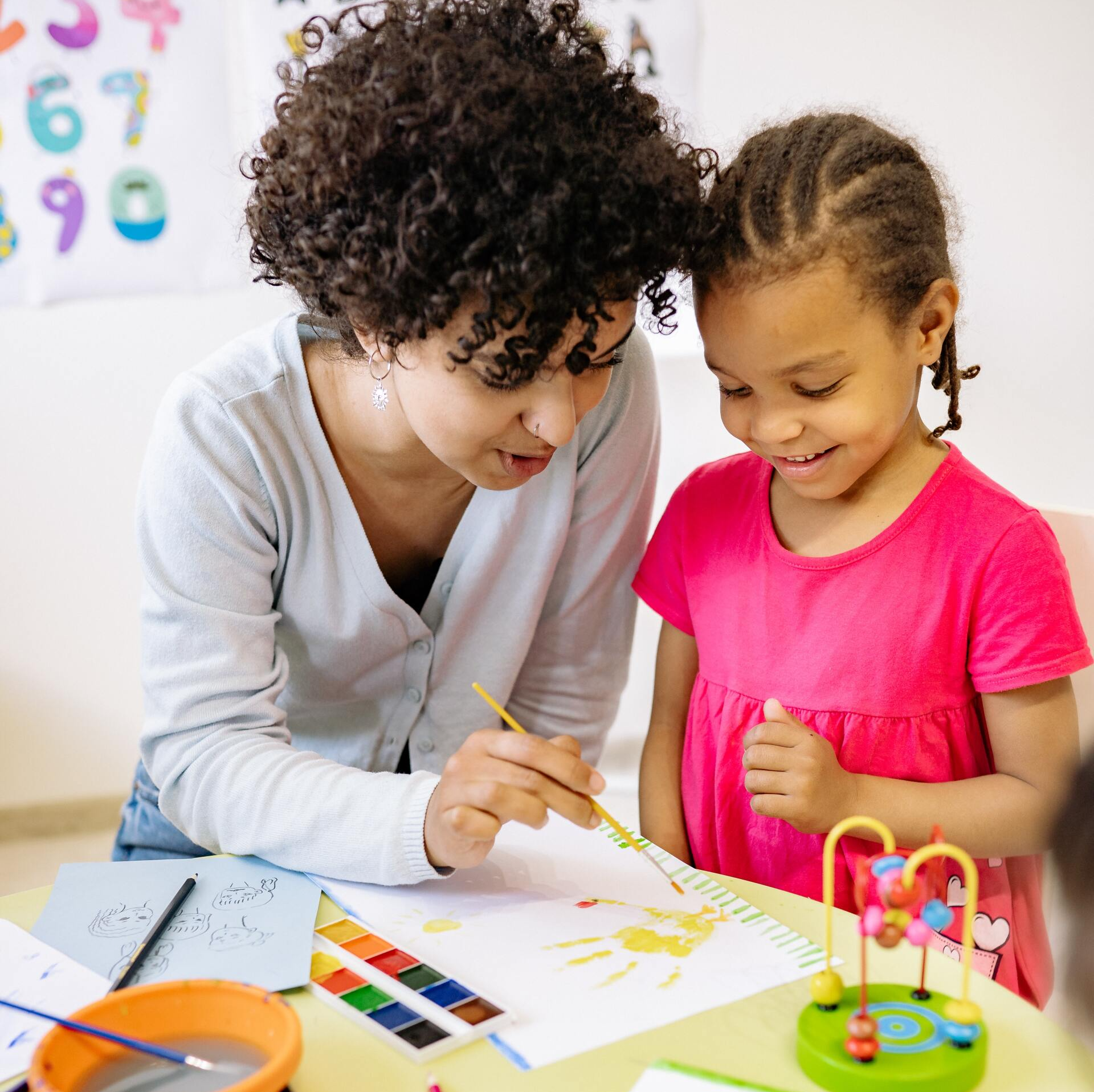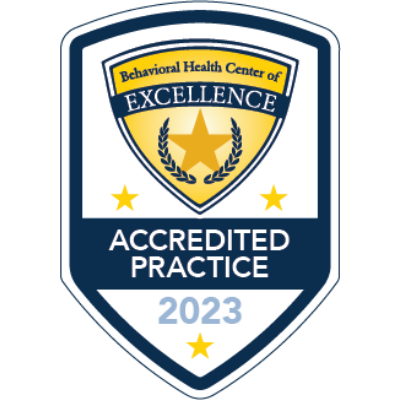The focus of Intensive ABA services is on skill building through direct one-on-one intensive intervention programmed by a Board Certified Behavior Analyst (BCBA) and provided to the person needing assistance by an ABA-trained professional (Registered Behavior Technician, RBT). For young children, we focus on teaching critical skills such as, developing and enhancing language, eye contact and joint attention, following directions, initiating interactions with peers, play skills, toileting and grooming, positive affect, and social pragmatics.
For school-aged children, we remain attentive to important language and social skills but additionally focus on academic development, independence, self-management, and adaptive skills. We use a variety of data-driven teaching methodologies, including Discrete Trial Training (DTT), Naturalistic Environmental Training (NET), employing procedures based on Verbal Behavior analysis, and incidental teaching. In dealing with challenging behaviors, we implement the least intrusive and most natural technique that is effective. The aim is to reduce unwanted behaviors and to increase desirable replacement skills by encouragement and positive reinforcement. Generalization is a goal of our program from the very beginning, during the acquisition process of each concept and skill. In general, concepts and skills are taught via discrete trials and/or within a sequence of behaviors via chaining. Once the learner has mastered a broad spectrum of skills/concepts, the focus of programming is to bridge these concepts and skills in the learner's natural learning environment. Services are provided several days a week, depending on the individual needs of each participant, as determined by the outcome of a behavioral assessment. Day to day routines are established in each participant's repertoire to encourage the generalization of concepts and skills as they are taught within our program’s generalization framework. The program curriculum covers all relevant domains, includes behavior programs and procedures, specifies a variety of teaching settings, and includes natural environment training as well as work on individual skills in isolation. Decisions on programming and treatment recommendations consider the level of need, age, hours of other intervention(s) in the person’s life, and the family’s ability to participate. Services are ended when target behavioral and skills goals are achieved. Transition planning to public education is an important part of this service.








